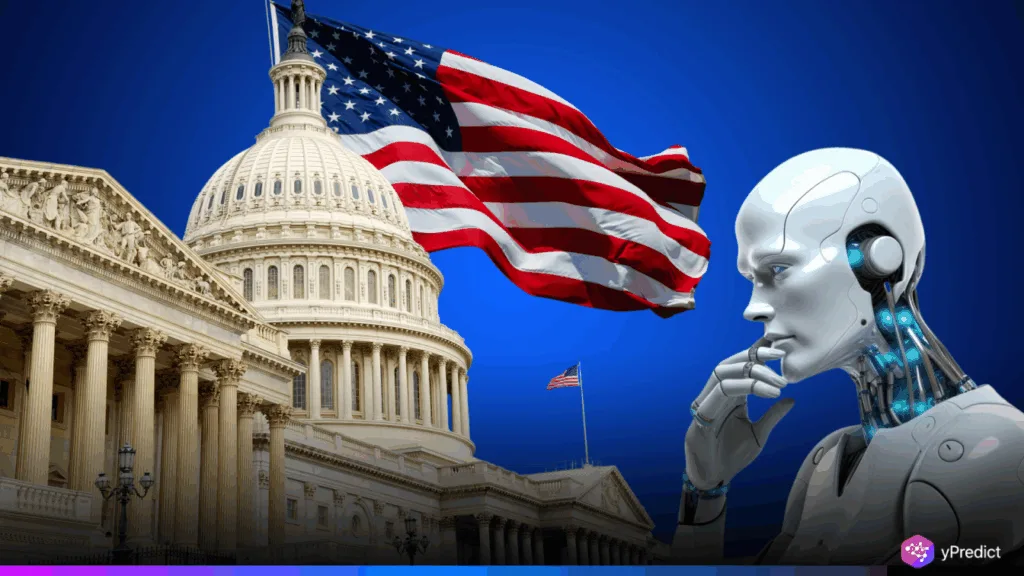
A high-stakes effort to ban state-level AI regulation for up to a decade has stalled in the U.S. Senate after Senator Marsha Blackburn of Tennessee abruptly reversed her position. Initially supportive of a five-year compromise version of the moratorium championed by Senator Ted Cruz, Blackburn pulled back late Monday, citing concerns over the tech industry’s overreach. Her decision halts momentum for the provision, which was part of President Trump’s sweeping tax and spending bill. The original House version would have made federal funding conditional on state compliance, triggering national debate over centralized AI legislation.
Big Tech Push Meets Grassroots Resistance in AI Battle
The proposed AI moratorium, introduced in the House and then softened in the Senate, would have blocked states from regulating AI for up to ten years. Industry leaders and some federal officials argue that national consistency is critical to avoiding a “regulatory patchwork” that could stifle innovation. Blackburn initially supported Cruz’s revised version, which limited the ban to five years and included exceptions for child safety and personal likeness protections. But she reversed course, claiming it would hand tech giants too much unchecked power. “This provision would allow big tech to continue to exploit children, creators, and conservatives,” she wrote.
Blackburn has since put forward an amendment to eliminate the moratorium altogether, and this is co-sponsored by a democrat, Maria Cantwell of Washington. Their cross-party opposition indicates a wider citizen interest in the effect of AI systems on civil rights, privacy, and local control. Over 1,000 bills focused on AI have been proposed in the state legislatures, and this demonstrates that there is substantial grassroots pressure to provide more specific and localized forms of AI regulation. The failure of the moratorium would enable such state-made programs to continue autonomously and perhaps create friction between national and state systems as AI advances at a faster rate.
AI Regulation Fight Becomes a Test of GOP Unity and Industry Influence
Senator Ted Cruz is now scrambling to save the AI moratorium provision, facing resistance from fellow Republicans, including Josh Hawley of Missouri. The GOP’s slim 53–47 Senate majority means any internal dissent could sink the measure. Its proponents view the moratorium as a protector against patchwork, unpredictable state-by-state AI regulation. Which they believe will cause enforcement incoherence, uncertainty on the side of developers, and underdeveloped technology. However, critics have cautioned that the overwhelming influence of tech lobbyists shapes the session and does not help the general good of the people.
California and New York have already signaled interest in moving forward with their own AI regulations, regardless of federal incentives. If they reject tied funding, the moratorium could lose practical influence, undermining its intended uniformity. Meanwhile, pressure is mounting on Congress to pass comprehensive federal AI legislation that doesn’t rely on preemption. Critics argue that instead of freezing state efforts, lawmakers should set clear federal standards that still allow room for local protections. As both chambers work to reconcile versions of Trump’s broader “One Big Beautiful Bill,” the future of AI oversight in the U.S., centralized or state-led, hangs in the balance. Cruz’s ability to unify his party may determine the outcome.
Future of AI Governance in the U.S. Still Uncertain
With Senator Blackburn’s defection, the fate of federal control over AI regulation is suddenly uncertain. Her action has rekindled the bipartisan worries relating to unregulated tech power and state authority to defend its own citizens. The moratorium on AI continues to be one of the most controversial and significant parts of legislation that is being hammered out by Congress as they work towards the final draft of the legislation package proposed by President Trump. The extent to which the U.S. opts for a centralized AI system or allows a variety of state solutions might determine to which generative AI, facial recognition, and automated decision-making develop in the life of the U.S. The way ahead is still unclear.






